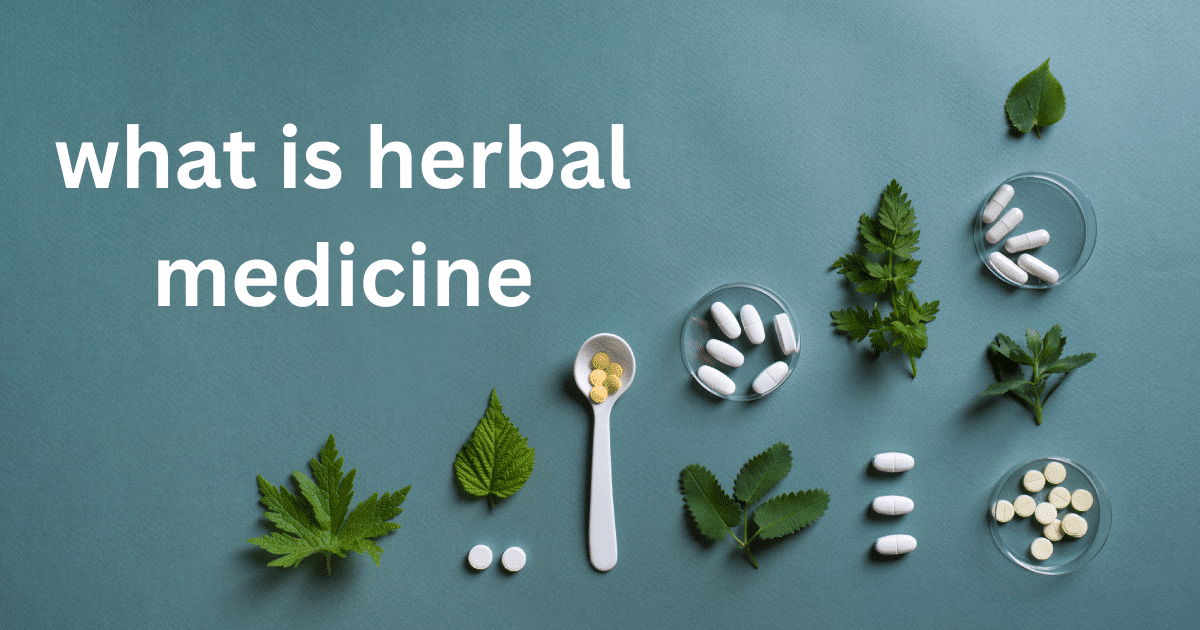What Is Herbal Medicine

In a world where contemporary medicine frequently takes center stage, herbal medicine is a time-tested, all-natural method of healing that has been used for generations. Using the power of plants, this age-old practice promotes well-being and treats a variety of illnesses. We’ll go on a journey to learn about the essence of herbal medicine in this blog article, as well as about its history, advantages, and current relevance and value as a part of healthcare.
Historically, Herbal Medicine
Plant-based therapies for medical purposes are known as herbal medicine, phytotherapy, or botanical medicine. This custom predates written history and has long been ingrained in many global cultures. Ancient societies, including the Greeks, Chinese, and Egyptians, valued the therapeutic qualities of plants and passed on their knowledge to succeeding generations.
Essential Ideas in Herbal Medicine
Herbal medicine takes a holistic approach, treating the full individual rather than simply their symptoms. Instead of only treating the symptoms of a condition, practitioners try to address the underlying cause of it.
Plant Diversity: A wide range of plants, each with special qualities and advantages, are used by herbalists. These include leaves, roots, flowers, and seeds.
Personalized Care: Considering variables such as age, gender, and general health, herbal medicines are frequently customized to meet the unique needs of each patient.
Gains from Using Herbal Medicine
Fewer negative Effects: Compared to certain synthetic pharmaceuticals, herbal therapies are typically considered safer and have fewer negative effects.
Assisting the Body’s Innate Healing Process: Frequently, herbal remedies ignite the body’s inherent restorative processes, encouraging a more organic and progressive recovery.
Herbal medicine is a complementary adjunct to modern medicine that can improve general health and well-being when used with traditional medical therapies.
Ecologically friendly and sustainable: Growing herbs for medical use is frequently a more environmentally friendly option than producing synthetic medications.
Common Herbs and How They’re Used
Echinacea: Known for enhancing immunity, echinacea is frequently used to treat and prevent respiratory infections and colds.
Lavender: This calming plant is a natural sleep aid, relaxation technique, and stress reliever.
Ginger: Often used to reduce nausea and enhance digestion, ginger is well-known for its anti-inflammatory and digestive properties.
Turmeric: A potent anti-inflammatory herb, turmeric is used to treat arthritis joint discomfort and strengthen the immune system.
In summary
The age-old practice of herbal medicine is still alive and well in the contemporary world. It is a useful adjunct to traditional medicine because of its all-encompassing approach to healing, dependence on natural therapies, and customized treatments. Herbal medicine is resurging as more individuals look for options that fit their beliefs of well-being and sustainability.
However, it’s important to remember that even while herbal medicine has numerous advantages, it should be used carefully and expertly. Seeking advice from a licensed herbalist or medical expert is essential to guarantee secure and efficient treatment.
is a poignant reminder of our strong connection to nature in a world where the societal pace frequently causes us to neglect nature’s healing ability. It’s a monument to the knowledge of our forefathers and a link to a more wholesome, peaceful future in which earthly cures will still enhance our lives and promote our well-being.




